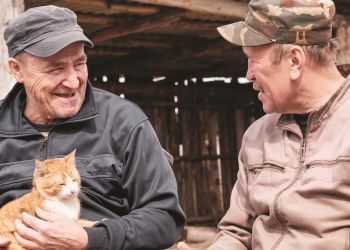In-person, on-site training provides unique opportunities for collaborative learning and breaking down barriers across agencies and disciplines. On July 15-16, four NACCHO staff had the opportunity to attend one such course at the Charleston County Emergency Management Department in South Carolina.
“Emergency Response to Domestic Biological Incidents,” offered on-site by the National Center for Biomedical Research and Training (NCBRT), equipped attendees with the tools and knowledge to effectively respond to biological releases, including weapons of mass destruction (WMD) and natural or accidental releases. The training covered viruses, bacteria, and toxins from smallpox to tularemia to ricin, along with different methods of delivery, including ingestion, inhalation, and absorption through the skin. The course began with a background and history of biological incidents and went on to cover the science behind the threats, how to recognize them, and how to overcome the unique challenges they pose in order to swiftly, effectively, and safely respond. A biological attack can be more difficult to  identify, contain, and treat than a chemical or radiological attack, because it can take days for symptoms to appear, and symptoms often first resemble more harmless influenza-like illnesses. These challenges make cross-sector planning and collaboration especially important.
identify, contain, and treat than a chemical or radiological attack, because it can take days for symptoms to appear, and symptoms often first resemble more harmless influenza-like illnesses. These challenges make cross-sector planning and collaboration especially important.
Over the course of two days, NACCHO staff learned from experienced NCBRT instructors and engaged in thoughtful discussion with attendees from many different professional backgrounds. Public health, emergency management, hazmat, and medical perspectives were all represented, and collaboration yielded insights from the participants’ unique professional expertise. For example, public health professionals contributed their knowledge about disease spread and containment, while learning how emergency management would handle a WMD or hazmat emergency. Likewise, local hazmat personnel learned from public health how biological releases differ from the typical hazmat incident, improving their ability protect themselves and the public. NACCHO staff gained perspective into the challenges local public health practitioners face as they plan for acts of terrorism, as well as better information and resources with which to provide technical assistance to NACCHO members.
The on-site, in-person trainings offered by NCBRT allow attendees to learn not just from the instructors, but also from each other. Holding the training on-site creates a more inclusive opportunity for many staff from a variety of local agencies to learn together and strengthen relationships. The exercises in the training become meaningful opportunities to walk through a hypothetical response in a real jurisdiction and identify gaps and misconceptions. These types of conversations are critical if first responders from public health, emergency management, and other important disciplines are going to effectively protect the public from a biological incident.
NCBRT offers a wide variety of trainings to emergency responders at no cost through a Homeland Security National Training Cooperative Agreement with the Department of Homeland Security (DHS). The NCBRT is part of the Stephenson National Center for Security Research and Training (SNCSRT) as well as the National Domestic Preparedness Consortium (NDPC), recognized by the Department of Homeland Security (DHS) as the principal vehicle through which the Training and Exercise Integration (TEI) division identifies, develops, tests, and delivers training to federal, state, local, and tribal emergency responders. Learn more about NCBRT
Learn more about the Emergency Response to Domestic Biological Incidents training and other learning opportunities through NCBRT.








